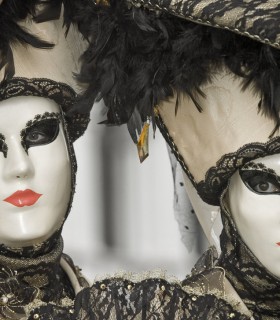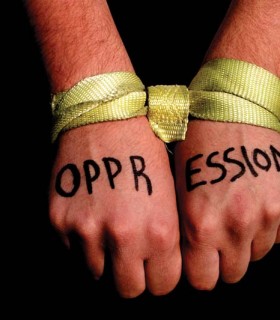With election season in full swing, I am once again reminded of how blindly people follow the herd when it comes to political ideology. We’ve seen the arguments about which party is worse, or whose candidate is the least trustworthy. We’ve seen people discuss how they settle for the lesser of two evils. How have we gotten to a place where voting for the individual who lies the least is considered our best choice? What causes people to cover their eyes and ignore the problems of their party because “it isn’t as bad as the other one?”
George Washington warned us in his farewell address:
“All obstructions to the execution of the laws, all combinations and associations, under whatever plausible character, with the real design to direct, control, counteract, or awe the regular deliberation and action of the constituted authorities, are destructive of this fundamental principle, and of fatal tendency. They serve to organize faction, to give it an artificial and extraordinary force; to put, in the place of the delegated will of the nation the will of a party, often a small but artful and enterprising minority of the community; and, according to the alternate triumphs of different parties, to make the public administration the mirror of the ill-concerted and incongruous projects of faction, rather than the organ of consistent and wholesome plans digested by common counsels and modified by mutual interests.
However combinations or associations of the above description may now and then answer popular ends, they are likely, in the course of time and things, to become potent engines, by which cunning, ambitious, and unprincipled men will be enabled to subvert the power of the people and to usurp for themselves the reins of government, destroying afterwards the very engines which have lifted them to unjust dominion.”
Sound familiar?
Political parties have become powerful organizations that are more concerned with control than fair governance. Washington was our only independent president, and possibly our only independent politician. He firmly believed that political parties would be the downfall of our democratic republic, and it’s difficult to argue with this in our current situation. Everyone seems to complain about dishonest politicians and their control over political parties, but when it comes time to vote, we line up like cattle at the stockyard and pull the lever for our chosen party like it’s some sort of religion.
Recently I had a discussion with someone who had read one of my articles criticizing the tribalist mentality of ideological zealots. The gentleman asked why I didn’t criticize conservatives more, and I explained that my point was not specific to one party or the other. This led to a discussion in which he tried to convince me that liberals were the innocent saviors of America, and that conservatives were responsible for all the evils in the world. As the conversation went on, he became more defensive of his chosen ideology, and more dismissive of the idea that there are no innocent players in our two-party dominant political system.
This is just one example, and I know that most people reading this have been in the same situation, especially if you believe—as I do—that both parties in the U.S. are equally complicit in the ills of our society. This is one of the reasons people avoid the discussion of politics, which should say something about the nature of such discussions.
We have essentially become willing participants in our own ignorance. We limit ourselves to the news sources that cater to our party ideology. We argue endlessly with people outside of our party, dismissing any legitimate criticism as “lies from the other side.” We vote, almost mindlessly, based entirely on the letter after a candidate’s name. Meanwhile, these party leaders and power brokers benefit from our distraction. We are victims of the most elaborate sleight of hand imaginable, and we do it all to ourselves.
So where am I going with this? If you belong to a political party, or staunchly sit in one camp or side of anything for that matter, consider George’s words. Is it in your best interest to support someone just because of an R or D after their name? Are political parties simply a way for a select few to control the many?
Perhaps next time you vote you should put some doubt in their heads and vote against your party, for a 3rd party, or even for the “other side.” Let them know that your vote isn’t a sure thing merely because you’re a registered Democrat or Republican. In the end, what’s the difference?
Trever Bierschbach is editor of fragsandbeer.com, a staff writer for highlandarrow.com, and a contributor at realwomenofgaming.com. He is a speculative fiction writer who has two shorts available on Amazon. He’s a gamer, reader, father, husband, and geek with a deep love for the freedom to enjoy it all.


